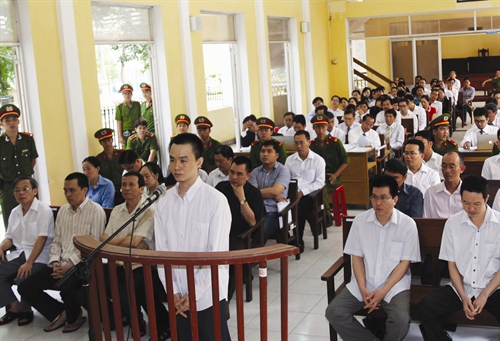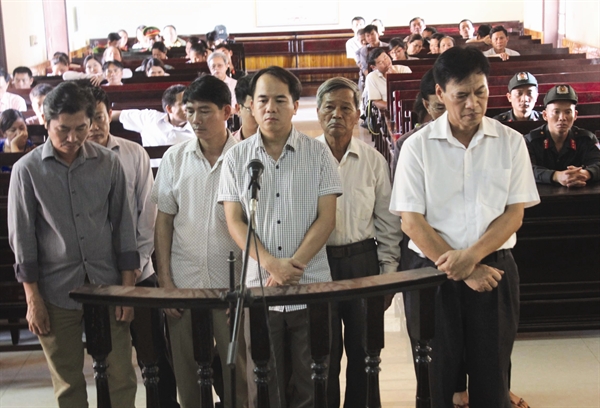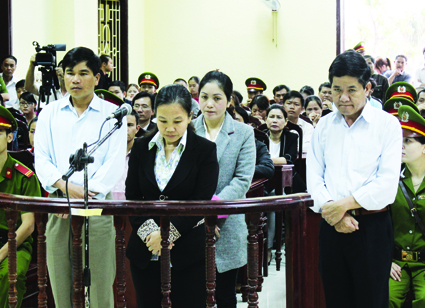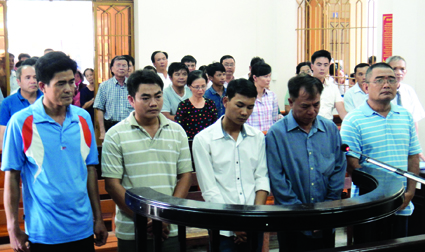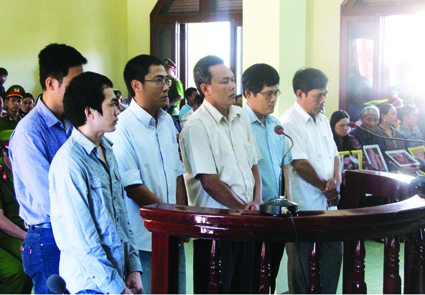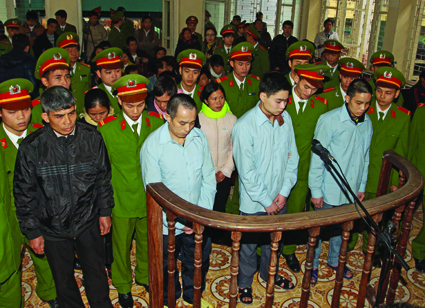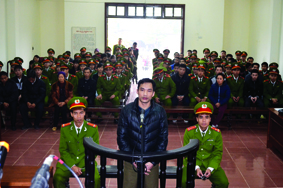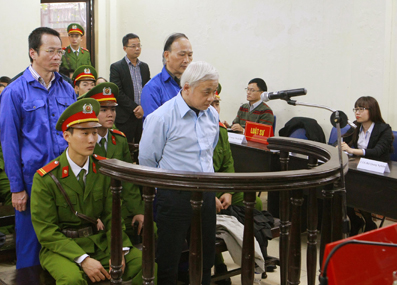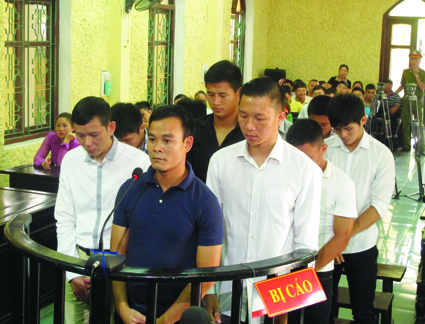Le Quang Thanh, LL.M
People’s Police University
Over the recent years, more and more cases of foreign swindlers have been reported throughout the country and in almost all of economic, cultural and social fields, especially import and export, investment, loan provision, capital raising and e-commerce. Though low in number compared to swindling cases involving local criminals, these cases have become more complicated in nature, scale and severity with serious consequences. This situation has made the fight against foreign swindlers in Vietnam imperative and the improvement of relevant legal bases for the fight urgent.
Current legal bases
At present, the most important legal bases for preventing and fighting crimes committed by foreigners in Vietnam are provided in the 1999 Penal Code (revised in 2009), the 2003 Criminal Procedure Code, the 2014 Law on Entry, Exit, Transit and Residence of Foreigners in Vietnam, agreements on mutual criminal justice assistance and other relevant documents on international cooperation. More specific legal bases are Government Resolution No. 09/1998/NQ-CP dated July 31, 1998, on crime prevention and fight in the new situation, Prime Minister Decision No. 138/1998/QD-TTg dated July 31, 1998, approving the national program on crime prevention and fight, and relevant circulars of the Ministry of Public Security and related ministries and agencies. These laws and regulations clearly provide the organization of the apparatus for preventing and fighting crimes, including swindling committed by foreigners, and define responsibilities of the entire society, state agencies, organizations and individuals in the crime prevention and fight. Particularly, they establish principles and procedural steps for handling foreign swindlers and their penal liabilities. These provisions, however, remain unsystematic, impractical and unspecific. Most of them impose penalties that are incommensurate to the severity of the crime and its consequences, thus making the crime fight ineffective.
The Law on Entry, Exit, Transit and Residence of Foreigners in Vietnam
The Law states in Article 7 that a foreigner may be granted a multiple visa, but it does not spell out the conditions for getting a multiple visa. In reality, procedures for grant of visas to foreigners vary among localities. Though providing in Article 30 the cases of forced exit and competence to force exit, it does not set forth procedures for forcing the exit of foreigners.
Most foreigners forced to leave the country for their violations of Vietnamese law have, however, sought to stay on. Many no longer have any personal identification papers, making it hard to contact embassies or consular offices of their countries for settlement.
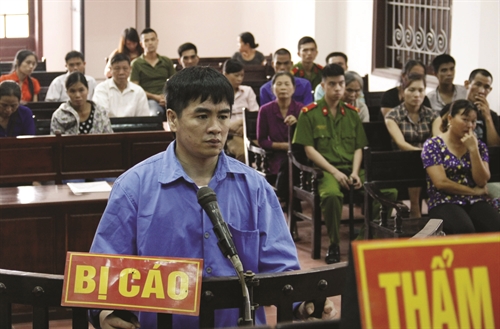 |
| Defendant Nguyen Van Khoa at the hearing for a narcotic trafficking case in Thai Nguyen province __Photo: Thu Hang/VNA |
Regulations on administrative and criminal custody
Clause 3, Article 2 of Decree No. 19/2009/ND-CP dated February 19, 2009, amending the Regulation on holding of persons in custody according to administrative procedures stipulates:
“The time limit for holding a person in custody according to administrative procedures is 12 hours. In case of necessity, this time limit may be prolonged but must not exceed 24 hours from the time the holding begins.”
Meanwhile, Clauses 1 and 2, Article 87 of the 2003 Criminal Procedure Code provide:
“The time limit for holding an arrestee in custody is three days after the investigative agency receives him/her. In case of necessity, the custody decision issuer may prolong this time limit up to three days. In special cases, the custody decision issuer may once again prolong this time limit another three days. Any case of custody prolongation shall be approved by the same-level procuracy. Within 12 hours after receiving a request for, and documents related to, the prolongation, the procuracy shall issue a decision to approve or not to approve it.”
The 24-hour time limit for administrative holding of a foreigner in custody is always insufficient for Vietnamese authorities to prove his crime since their professional methods can hardly be applied to foreigners. It is the same problem for the issuance of decisions on criminal holding of persons in custody and decisions to approve or not to approve arrest decisions of investigative agencies under the competence of procuracies of the same level.
The 1999 Penal Code
The Code contains only five articles dealing with crimes involving the use of high technology (Articles 224, 225, 226, 226a and 226b). These provisions are not adequate to help law enforcement agencies effectively fight crimes committed by foreigners in reality, including use of counterfeit credit cards, fraud in securities trading, e-commerce and e-payment; development of botnets to attack websites of the Government, banks and airlines or to hack information; and use of spyware to attack governmental bodies, banks and major businesses to get illegal access to and destroy data for political and economic purposes.
Since the Code does not criminalize legal entities in any circumstance, foreign organizations could avoid being punished for their swindling acts in Vietnam. In reality, only foreign individuals of these organizations have been prosecuted for the crime, paying fines or having their property confiscated which are small compared to assets of their organizations. Without having to face heavy penalties (asset confiscation, account freezing and dissolution), these organizations are highly likely to relapse into the crime.
The 2003 Criminal Procedure Code
Clause 2, Article 80 of the Code stipulates:
“An arrest warrant must clearly state the date, full name and title of the warrant issuer, the full name and address of the arrestee, and the reason for the arrest. It must bear the signature of the issuer and a seal.
The executor of an arrest warrant shall read the warrant, explain the warrant, rights and obligations of the arrestee, and make a written record of arrest.”
It is also required by Clause 1, Article 84 of the Code that:
“In any circumstances, the person executing an arrest warrant shall make a written record of arrest.
A written record must clearly state the date, time and place of arrest, place of making the record; actions already taken, the developments when the arrest warrant is served, objects and documents seized and complaints of the arrestee.
The written record shall be read to the arrestee and witnesses. The arrestee, the executor of the arrest warrant and witnesses shall all sign the record. If any of them holds opinions different from or disagrees with the record’s contents, he/she may write such in the record and sign.”
In case of arresting foreigners caught red-handed or in urgent circumstances, investigators are required by the above provisions to, for example, read and explain arrest warrants to them. These actions would need an interpreter. Without an interpreter, who is rarely available with investigative agencies, the arrest in urgent circumstances cannot satisfy the requirement that the foreign arrestee is fully aware of his/her rights and obligations after the arrest warrant is read and explained.
Also, the Code remains unspecific on how deterrent measures may be applied to foreign diplomats, who are responsible for making written records of arrest of foreign diplomats caught red-handed, how material evidences should be seized, statements of arrestees be taken and their personal identifications be verified.
Regarding actions to be taken following the arrest of a person or receipt of an arrestee, Clause 1, Article 83 of the Code stipulates:
“After arresting a person in an urgent case or an offender red-handed or receiving such arrestee, an investigative agency shall take his/her statements and shall, within 24 hours, issue a decision to hold the arrestee in custody or release them.”
If the arrested person is a foreigner, this provision can hardly be complied with because it is almost impossible to verify within 24 hours his personal identification and background and clarify his criminal act in order to decide to hold him in custody or free him. This is because professional methods of Vietnamese investigators are inapplicable to foreigners while foreign offenders usually employ sophisticated tricks and high technologies to commit and cover up their criminal acts. Victims are often uncooperative for fear of dishonor and revenge. Language barriers also make the taking of statements and testimonies difficult without an interpreter, whose appointment, participation and role in interrogations are not specified in the Code.
Recommendations
From the above analysis, we recommend several revisions to the current legal framework to better help crack down onforeign swindlers.
The 2014 Law on Entry, Exit, Transit and Residence of Foreigners in Vietnam should provide specific measures to coerce the exit of foreigners, define agencies and organizations competent to force such exit and procedures for forced exit. It is necessary to issue aseparate decree regarding this issue, followed by a joint circular of the Ministry of Public Security and Ministry of Foreign Affairs with detailed provisions.
The Penal Code should divide fraudulent acts to acquire property from others into independent crimes with objective and distinctive descriptions and types and levels of penalties suitable to the nature and danger of each crime. These crimes may be making, storing, transporting and trading in counterfeit credit cards; swindling with counterfeit credit cards; swindling via the Internet, etc. Penalties for such crimes should be effective and feasible, for example, fines as principal penalty should be imposed at reasonable levels and deportation used as an additional penalty against foreign criminals.
Vietnamese lawmakers may learn from criminal laws of the developed countries to add in the revised Penal Code independent crimes of frauds in securities trading, banking and insurance to rip off others’ money.
The Penal Code should also criminalize legal entities in the context that more and more foreign legal entities are predicted to enter Vietnam to collude with local criminals in swindling property from state agencies, organizations, businesses and citizens. It should be noted that penal liability of legal entities has been established in the criminal laws of many countries around the world.The provisions on application of deterrent measures to foreign criminals in Vietnam in the 2003 Criminal Procedure Code should be revised toward making clear whether it is a must to promptly read and explain arrest warrants to foreigners under arrest, or from which agencies or organizations can interpreters be invited or requested by investigative agencies. Provisions on the application of deterrent measures to foreign diplomats should also be added.
The Code’s provisions on administrative and criminal holding of persons in custody should be amended to increase the duration of custody of foreigners from current 24 hours to 72 hours and the time limit for a procuracy to approve a custody decision from current 12 hours to 48 hours.
The time limit for issuance of a decision to hold in custody or release a foreign suspect should be longer (48 hours) to facilitate the verification of his/her personal identifications and criminal act.-
